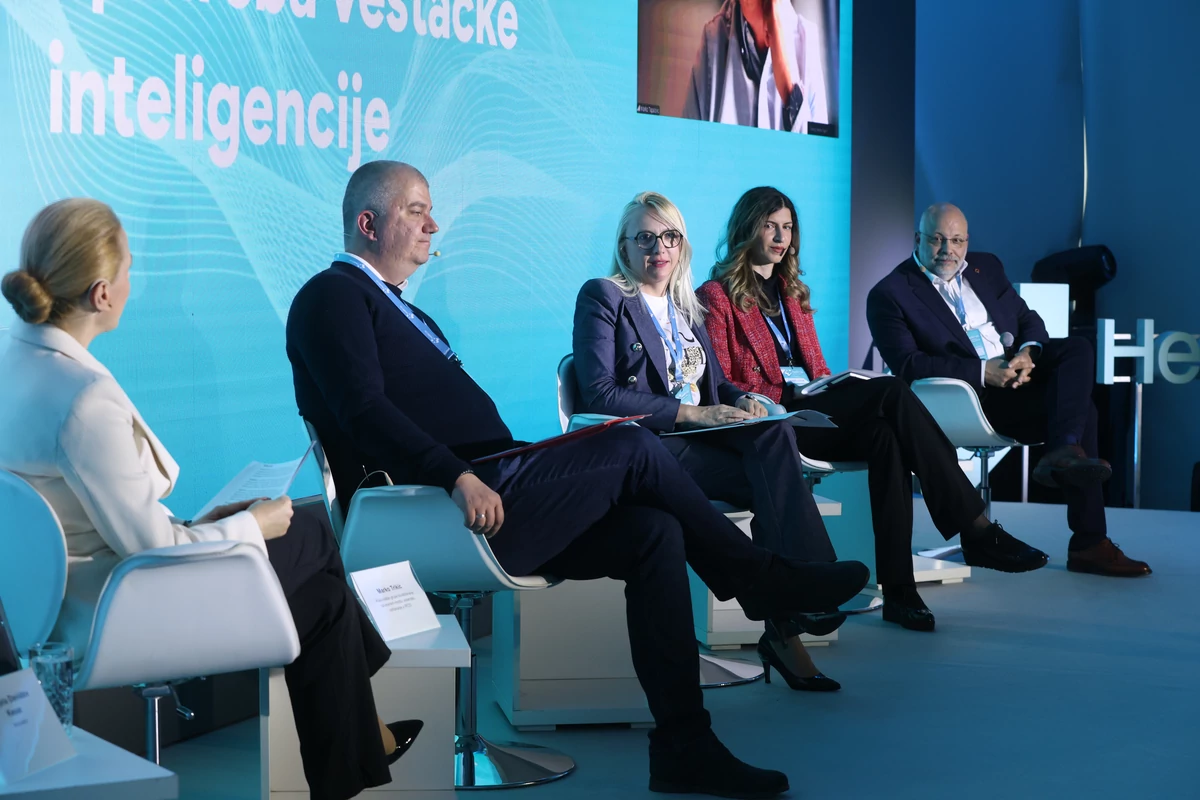photo: Blic
The largest regional conference addressing health and healthy lifestyle, “Health Up”, was held on April 23 and 24 at the “Mona Plaza” hotel in Zlatibor. Vukašin Radulović, a partner in the companies “Heliant” and “Infolab”, took part in one of today’s panels.
The “Health Up” conference brought together researchers, doctors, scientists, leaders, individuals and institutions – everyone who is interested in the present and future of healthcare as a whole. Over 300 guests and 35 top experts – panellists participated in this two-day event and addressed 6 extremely current and important topics in the field of medicine.
The conference was officially opened by MD/PhD Sanja Radojević Škodrić, acting director general of the National Health Insurance Fund (RFZO). The introductory lecture was delivered by Fabio Scano, director of the Office of the World Health Organization (WHO) for Serbia.
The last panel addressed the issue of the future of the healthcare system and the use of modern technologies in medicine. The topic “Treatment for the 21st century – telemedicine and the use of artificial intelligence” was addressed by Vukašin Radulović, co-founder of the companies “Infolab” and “Heliant”, Marko Topalović, general director and founder of “ArtiQ”, Jelena Bojović, director of the Centre for the Fourth Industrial Revolution in Serbia, Marko Trikić, head of the group for system maintenance in RFZO and Isidora Smigić, manager for regulatory reform in the field of healthcare in NALED. The high-quality and dynamic discussion was moderated by Danijela Davidov Kesar, a journalist from the newspaper “Politika”, specializing in the field of health.

photo: Blic
“The fight for data is present globally, and because of this we have to learn how we can additionally use it. “To keep up with rapidly advancing medicine, we need to take data availability to the next level. It is important that our data be part of international networks,” says Radulović.
“Data that is not structured is not useless and not unusable, but it is so many times less usable that it is completely clear what our goal is. And that is the intersection of structured data and the greatest amount of knowledge. Data is often compared and said to be the gold of the 21st century, but we must not treat it like gold, to “lock” it and not share it with anyone. Because unlike other resources, such as the water you drink and it’s gone, data is not like that. The more we use the data, the more we cross-reference it, the more heterogeneously we apply it, the higher quality, better, usable it is, and that’s what we have to work on together. However, our people are sceptical when it comes to sharing their health data,” Vukašin Radulović points out.
The panellists agreed that artificial intelligence could not replace doctors, but rather help them in their work. Without doctors, it would not be possible to develop AI models, stated Jelena Bojović, director of C4IR. Radulović added that artificial intelligence would not replace doctors, but he believed that “doctors who used artificial intelligence would soon replace those who did not use it.”
The NALED survey shows that doctors welcome the process of digitization of medicine, which also has support among citizens. The majority of surveyed citizens believe that it is good to continue further digitization.
In order to keep pace with good practices in the use of telemedicine and AI in healthcare, we need to create new classes of experts, who will close the gap between information technology and medicine. It already exists to a large extent in the west. To get closer to that model, “Heliant” employs doctors and biochemists who collaborate with developers to achieve an optimal user experience.
